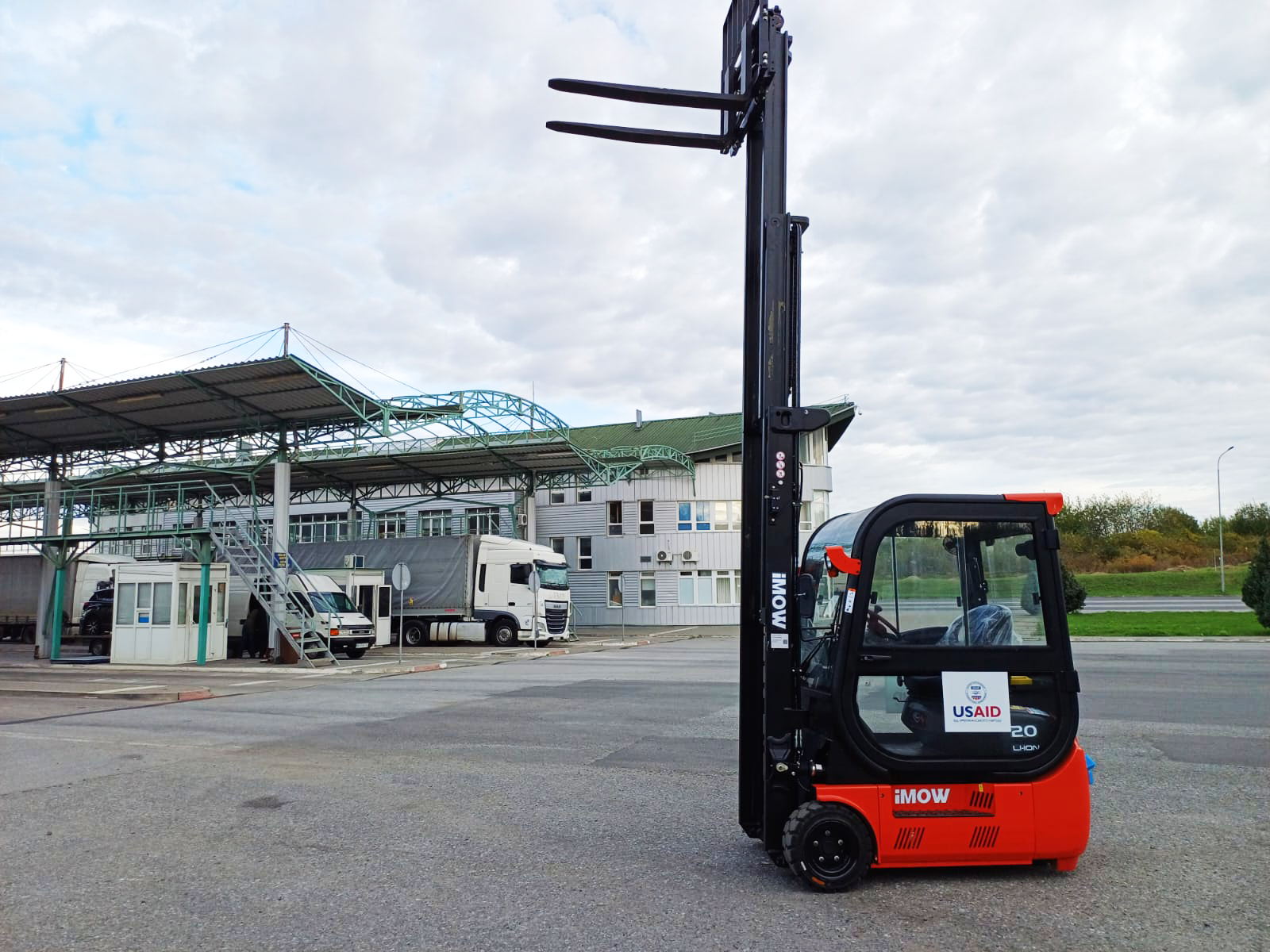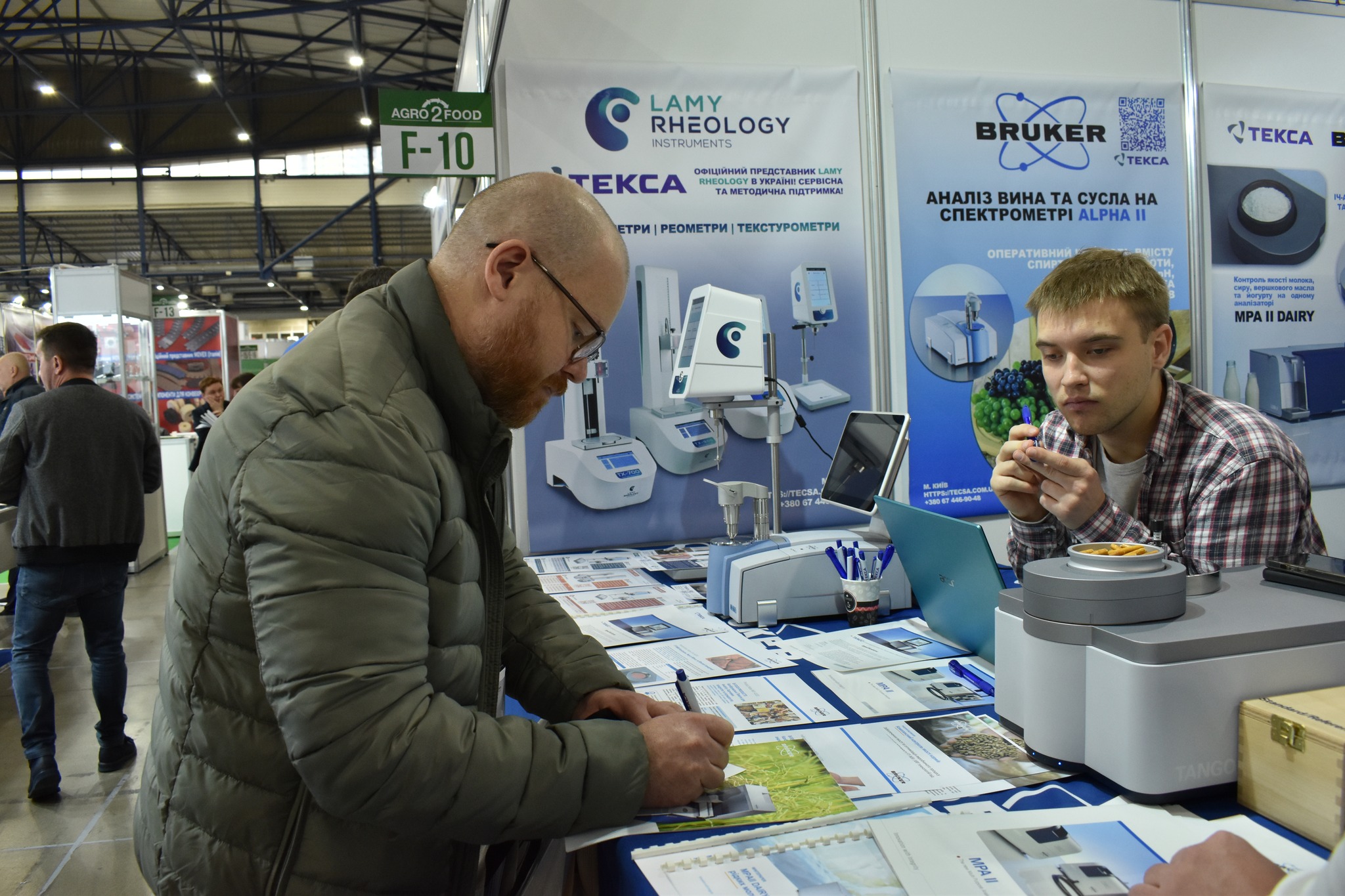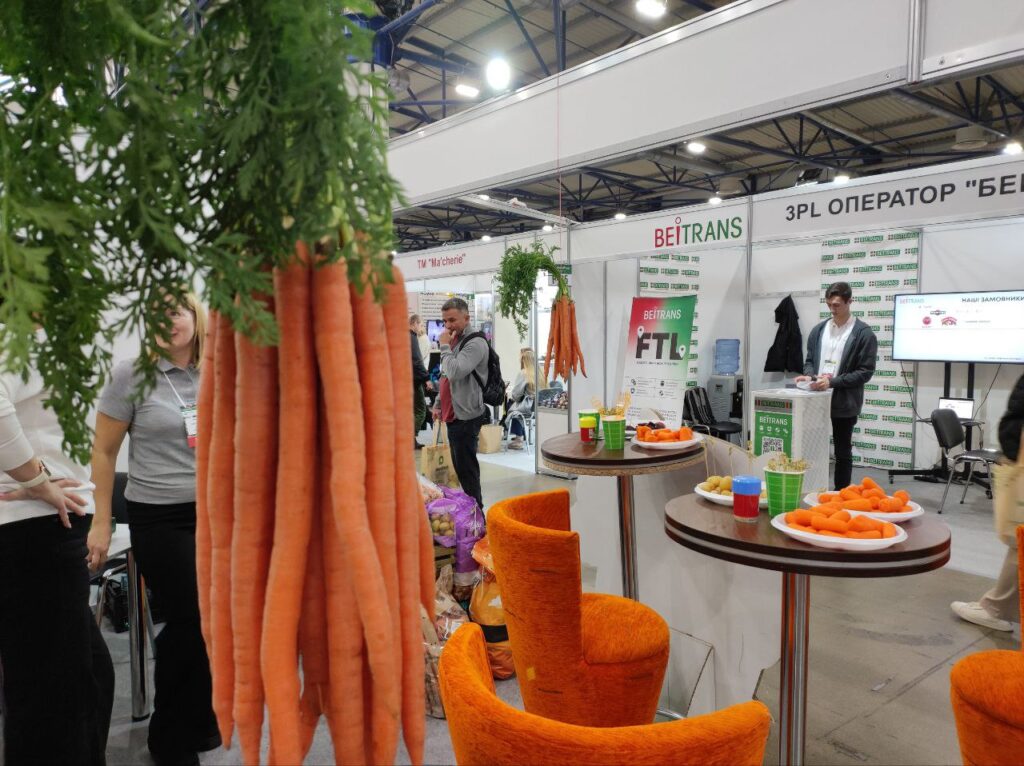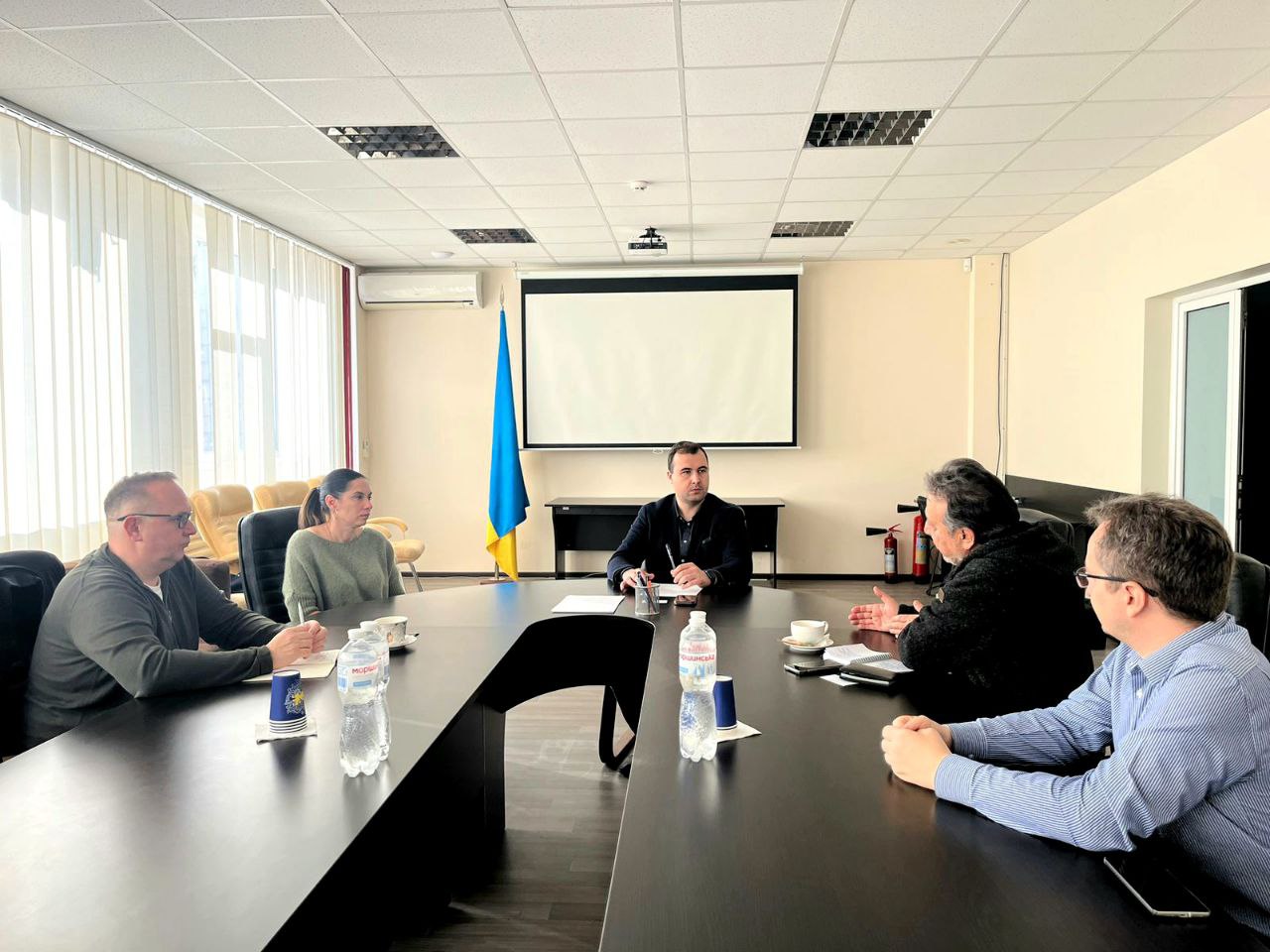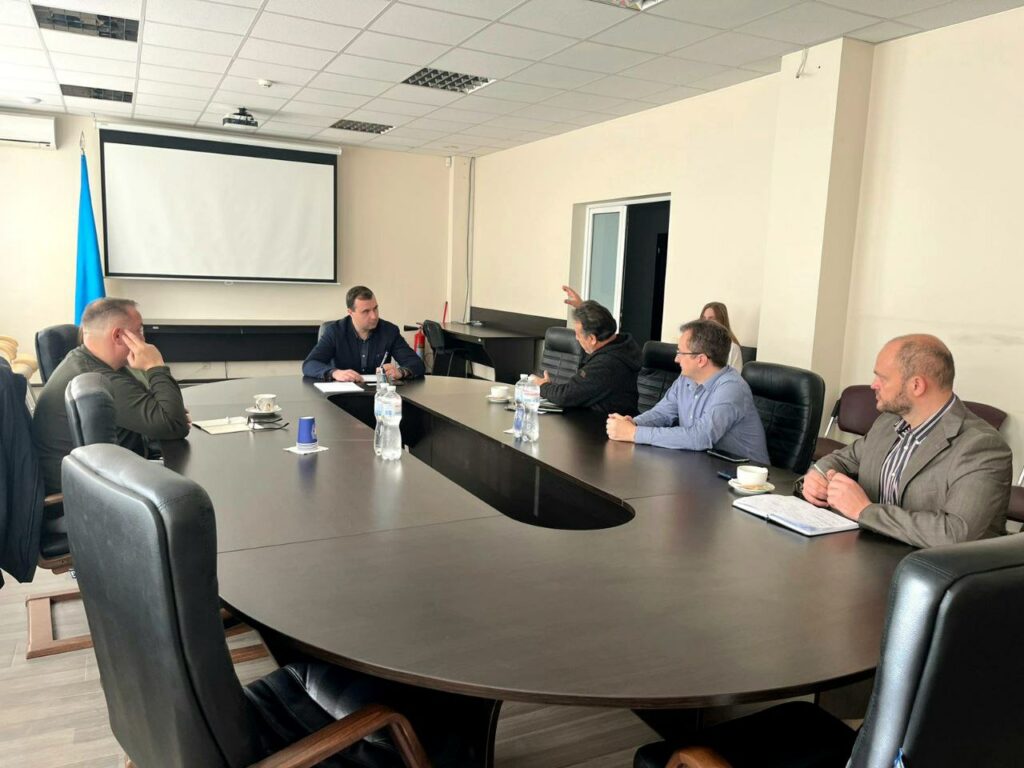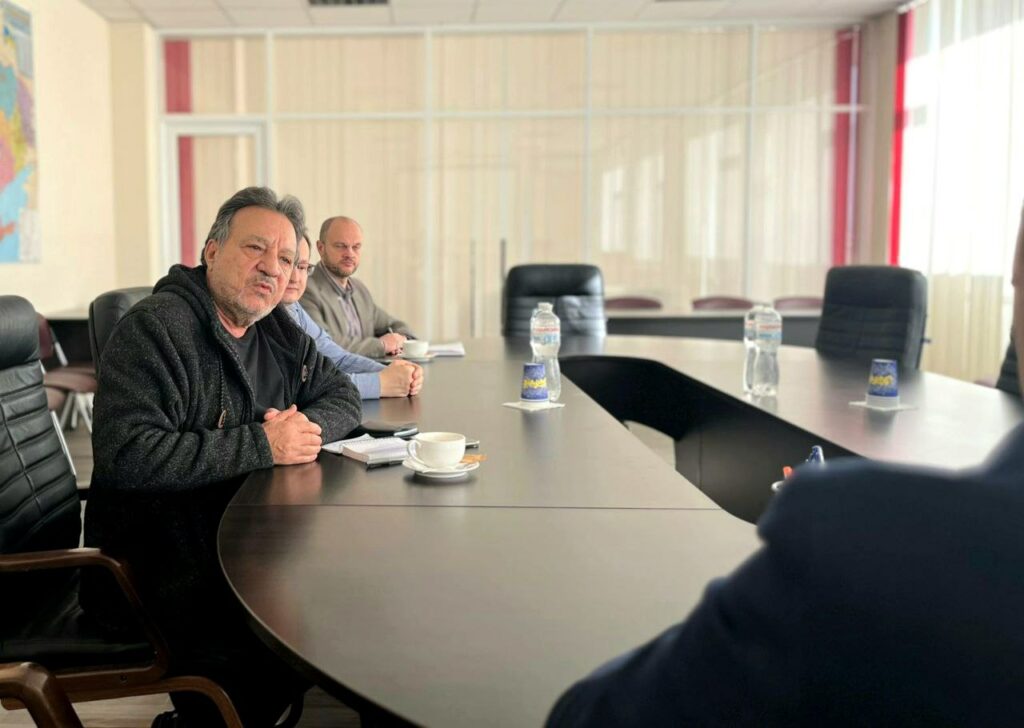Kyiv/Odesa
ERA BACKGROUND
Ukraine’s efforts to win the future – emerging from Russia’s full-scale war ready to accelerate its development as a sovereign, independent, democratic, and prosperous state – require a dynamic, inclusive economic recovery. Through partnerships with the government and robust private sector engagement, ERA has supported economic growth and resilience in Ukraine since 2018. Following Russia’s brutal invasion of Ukraine in February 2022 and subsequent occupation of the part of Ukraine, ERA shifted from its focus on Eastern Ukraine to cover development priorities across the country that address Ukraine’s urgent needs in export logistics and infrastructural improvements.
AGRI-UKRAINE GRAIN EXPORT LOGISTICS
USAID’s Economic Resilience Activity (ERA) is one of USAID’s core partners implementing the $350 million Agriculture Resilience Initiative – Ukraine (AGRI-Ukraine) that was established in 2022 to bolster Ukrainian agricultural exports and alleviate the global food security crisis exacerbated by the war. Under AGRI-Ukraine, ERA partners with public and private companies to complement and leverage urgently-needed grain transportation and transshipment investments.
INFRASTRUCTURAL IMPROVEMENTS
ERA also directly supports the Government of Ukraine, including the State Agency for Restoration and Development of Infrastructure of Ukraine (SARDI), the State Customs Service and Ukrainian Railways, to upgrade 42 of Ukraine’s border crossing points (BCPs). Modern and more efficient border infrastructure and customs procedures will reduce export costs and increase export capacity, enabling Ukraine to scale trade and advance its path to EU integration.
ENERGY AND EMERGENCY RESPONSE (EER) SUPPORT
As one of USAID’s most flexible activities that responds to emerging and/or emergency needs, ERA is expanding its interventions that assist Ukraine businesses, communities or individuals in the fall and winter (September 2024-December 2025). The goal is to minimize the impact on the Ukrainian people and economy given recent power deficits. This is an adaptive component and ERA may also need to respond to other emergency needs in the face of ongoing Russian aggression and attacks on Ukraine’s critical infrastructure.
JOB OVERVIEW
The AGRI Private Partnerships Specialist is responsible for working with AGRI logistics companies, grain traders, and agricultural holdings, both public companies and private-owned companies as well as agricultural associations/unions/councils. This role requires a strong knowledge of the AGRI commodity export industry, including logistics and supply chain management. The AGRI Private Partnerships Specialist will be responsible for developing and maintaining relationships with private sector AGRI companies and traders, working with them to identify and address challenges to the export of AGRI commodities, and supporting them in implementing best practices for AGRI products export and logistics. The AGRI Private Partnerships Specialist is based in Kyiv/Odesa and reports to the AGRI Operations Manager.
RESPONSIBILITIES:
- Develop and maintain relationships with both private sector companies and state partners to promote the export of AGRI commodities.
- Work with private sector partners to identify and address challenges to the export of AGRI commodities, including logistics and supply chain issues.
- Support private sector partners in implementing best practices for AGRI commodity export and logistics.
- Facilitate communication and coordination between private sector partners and other stakeholders, including government agencies, international organizations, councils, associations or trade unions.
- Collaborating with the AGRI Team, elevate agricultural logistics and transportation capabilities, facilitating the streamlined and punctual export of agricultural commodities to global markets.
- Work closely with other USAID ERA teams to ensure that private sector engagement is integrated into all project activities.
- Join and closely follow the efforts of the AGRI team in promoting, reconstructing, and repairing various agricultural commodities export facilities.
- Create meeting memos/reports timely with key bullet points to circulate among SMT upon request.
- Follow-up requests to or meetings with beneficiaries upon request.
- Conduct field visits or other business trips within Ukraine with the purpose of due diligence, visibility check, preparation of USAID meetings and other upon request
- Contribute to project planning, monitoring progress, and ensuring that objectives are met within budget and time constraints.
- Timely verification to their best knowledge the potential reputational and compliance risks (Know-Your-Client).
- Analyze the private agricultural market and propose a strategy of partnership with selected beneficiaries.
Reporting:
- Prepare accurate and timely field reports and other documentation as required.
- Monitor and report on the progress of private sector partners in expanding and improving the export of AGRI commodities.
- Support the MEL Team with deliverables, as it relates to private partnerships.
JOB EXPECTATIONS:
In this position, you are expected to share the DAI four core values:
- Integrity: commit to civil and ethical behavior, play by the rules, and do the right thing;
- Responsibility: be accountable to clients, partners, grant recipients, beneficiaries, colleagues, and communities where we work. If you fall short, you own up, fix the problem, and get it right the next time;
- Excellence: adhere to the highest technical and professional standards in innovation, learning, and service;
- Global Citizenship: respect the cultural diversity and treat everyone everywhere with professionalism and dignity to make the world a better place.
QUALIFICATIONS
- Bachelor’s degree in agriculture, business, economics, or a related field.
- At least 7 years of experience working with private agricultural logistics companies and grain traders or associations/unions/councils.
- Seamless cross-functional teamwork skills to elevate agricultural logistics and transportation capabilities, facilitating the smooth and timely export of agricultural products to global markets.
- Strong knowledge of the AGRI commodity export industry, including logistics and supply chain management.
- The ability to prioritize competing tasks, set realistic deadlines, and manage time efficiently.
- Experience working with USAID or other international development organizations is a plus.
- Excellent communication, presentation and interpersonal skills.
- Ability to work independently and as part of a team.
- Fluent English and Ukrainian are required.
WE OFFER
Contract length: 12-month employment agreement with a possibility of extension.
Benefits Package:
- 28 calendar days of annual leave
- 10 days of internal well-being paid leave per year
- Medical Insurance for ERA staff and their families
- Life and Injury Insurance for ERA staff
- Full coverage of all business trip related expenses.
Start date: December 2024
Application process
All applicants must send a cover letter and updated CV (no longer than four pages) in English to ukraine@dai.com
All qualified applicants will receive consideration for employment without regard to race, color, religion, sex, sexual orientation, gender identity, national origin, disability, age, or status as a protected veteran.
Closing date for applications: December 25, 2024.
For further information about DAI GLOBAL LLC, please consult our website era-ukraine.org.ua.
